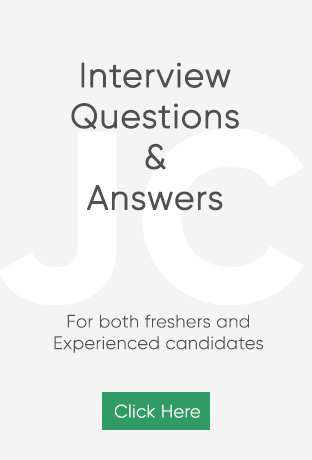Securing a job as an analyst requires a combination of technical expertise, problem-solving skills, and the ability to effectively communicate insights. To ace an interview for an analyst position, it is crucial to prepare for common questions that employers frequently ask. In this article, we will present the top 10 interview questions and provide comprehensive answers to help you prepare for your next analyst job interview.
- Question: Can you describe your experience in data analysis and how it relates to this role?
Answer: In my previous role as a data analyst, I worked extensively with large datasets, conducting quantitative analysis, data mining, and visualization to extract meaningful insights. I have a strong understanding of statistical methods and tools such as SQL, Excel, and Python. This experience has equipped me with the necessary skills to tackle complex analytical problems and deliver actionable recommendations.
- Question: How do you ensure the accuracy and quality of your analysis?
Answer: I prioritize accuracy by employing a structured approach to data analysis. I start by thoroughly understanding the data sources and performing data cleaning and validation. I utilize statistical techniques and visualization tools to identify outliers and inconsistencies. Additionally, I constantly seek feedback from peers and stakeholders to ensure the quality and validity of my findings.
- Question: Can you provide an example of a challenging problem you encountered and how you solved it?
Answer: In my previous role, I faced a situation where I had to analyze a vast dataset with missing values. To address this, I employed imputation techniques to estimate the missing values based on patterns and correlations within the data. I then validated the imputed values using statistical tests and performed sensitivity analysis to assess the impact on the results. By using these approaches, I successfully completed the analysis and delivered accurate insights to the stakeholders.
- Question: How do you handle tight deadlines and multiple competing priorities?
Answer: When faced with tight deadlines and competing priorities, I prioritize tasks based on their urgency and impact. I break down complex projects into smaller, manageable tasks and create a timeline with realistic milestones. Effective communication and collaboration with team members and stakeholders are also essential to ensure everyone is aligned on priorities. By leveraging time management techniques and staying organized, I have consistently met deadlines and delivered high-quality work.
- Question: What methods do you use to communicate complex data analysis to non-technical stakeholders?
Answer: I believe in using a storytelling approach to effectively communicate complex data analysis to non-technical stakeholders. I simplify technical jargon and use visualizations such as charts, graphs, and infographics to present key findings. I also provide clear and concise explanations, emphasizing the business implications of the analysis. By tailoring the message to the audience and engaging in two-way communication, I ensure that stakeholders understand and can make informed decisions based on the analysis.
- Question: How do you stay updated with the latest industry trends and technologies in data analysis?
Answer: I am an avid learner and believe in continuous professional development. I regularly read industry publications, research papers, and attend webinars and conferences to stay updated on the latest trends and technologies in data analysis. I also actively participate in online communities and engage in discussions with fellow professionals. By staying curious and proactive, I ensure that my skills and knowledge remain relevant in this rapidly evolving field.
- Question: How do you handle situations where your analysis leads to unexpected or unfavorable results?
Answer: As an analyst, I understand that unexpected or unfavorable results are part of the analytical process. In such situations, I approach them as opportunities for learning and improvement. I thoroughly review my methodology, assumptions, and data sources to identify potential issues. I seek input from colleagues or subject matter experts to gain different perspectives. Ultimately, I focus on understanding the underlying factors contributing to the unexpected results.
- Question: How do you handle working with large datasets and ensure efficient analysis?
Answer: When working with large datasets, I employ various strategies to ensure efficient analysis. Firstly, I leverage data sampling techniques to extract representative subsets for exploratory analysis, reducing computational requirements. Additionally, I utilize data aggregation and summarization techniques to derive insights from the dataset at different levels of granularity. Implementing parallel processing or utilizing cloud-based computing resources also helps in improving computational efficiency. By employing these strategies, I streamline the analysis process and maximize efficiency.
- Question: How do you approach problem-solving in your analytical work?
Answer: Problem-solving is at the core of an analyst’s role. I approach problem-solving by following a structured framework. Firstly, I define the problem clearly and identify the desired outcome. Then, I gather relevant data and conduct a comprehensive analysis, employing appropriate methodologies and tools. Throughout the process, I maintain a curious and open mindset, exploring multiple perspectives and considering alternative solutions. Finally, I present my findings and recommendations, ensuring that they align with the problem statement and contribute to the organization’s objectives.
- Question: How do you handle working with cross-functional teams and stakeholders?
Answer: Collaboration and effective communication are key when working with cross-functional teams and stakeholders. I proactively engage with team members and stakeholders, ensuring that I understand their goals and requirements. I actively listen and consider different viewpoints to foster a collaborative environment. Regular status updates, progress reports, and clear documentation help maintain transparency and alignment. Additionally, I actively seek feedback and address concerns promptly, fostering strong relationships built on trust and respect.
Conclusion:
Preparing for an analyst job interview involves not only showcasing technical skills but also demonstrating problem-solving abilities and effective communication. By familiarizing yourself with these top 10 interview questions and crafting thoughtful answers, you’ll be better equipped to impress potential employers and land your dream analyst job. Remember to adapt your responses to your own experiences and strengths to make a lasting impression during your interview. Best of luck!

